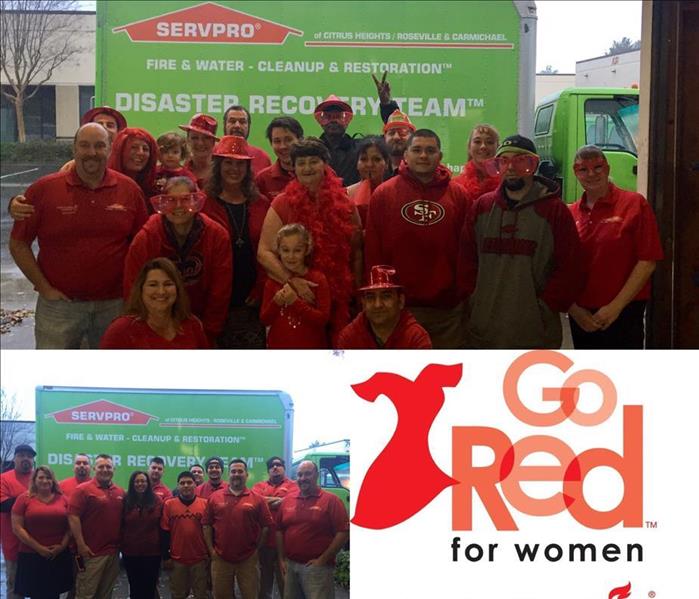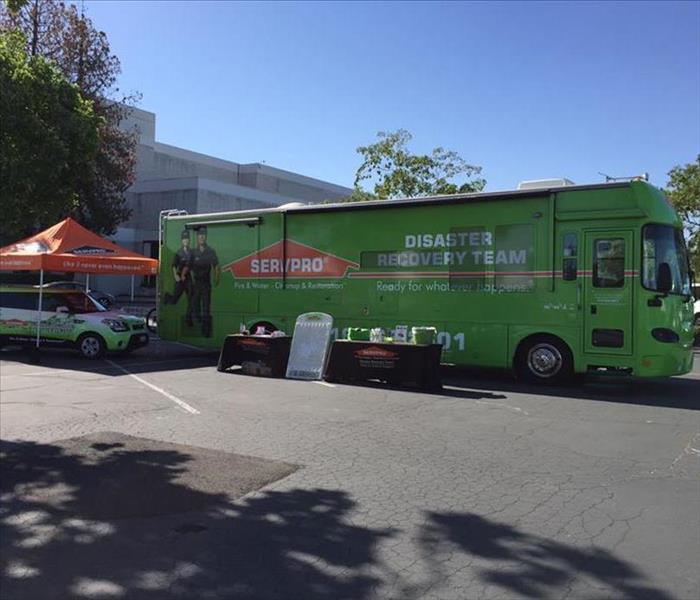Recent General Posts
Does Your Family Have an Emergency Fire Plan?
6/25/2020 (Permalink)
 An emergency plan is a set of instructions stating steps for each family member to take and adhere to in the eventuality of a disaster.
An emergency plan is a set of instructions stating steps for each family member to take and adhere to in the eventuality of a disaster.
An emergency plan is a set of instructions stating steps for each family member to take and adhere to in the eventuality of a disaster. It is easy to forget how disruptive a disaster can be with regards to our set routines, movement, communication channels. It is, therefore, essential that the whole family understands the plan. In creating this plan, pay special attention to adults, kids, and those with special needs.
An Emergency Plan can be developed in 3 steps:
COLLECT
During an emergency, there are two key concerns: Getting to a safe place, ensuring your family and loved ones are also in a safe place.
Simple guidelines include:
- Collect important household contact information for your family and other important people/offices, such as medical facilities, doctors, schools, or service providers.
- Find out what to do during an emergency if you or your family member is at home, outdoors in the neighborhood, work, school, a childcare home, or out of town.
- Find out if there are shelters that can be used as muster points or emergency meeting places in each of these locations.
- Specific instructions include receiving and identifying emergency alerts, navigating to the nearest shelter, and making use of emergency communication channels.
- Tips specific to different emergencies such as fire or flood emergency.
SHARE
Once the plan is completed, it can be printed onto a wallet-sized card.
- Make sure everyone carries a copy of the plan in a place that is easily accessible.
- You should also post a copy of your plan in a central location in your home. A good place for your emergency plan is posting it to your refrigerator or on a family bulletin board.
- Also, have a digital copy in everyone's mobile device.
PRACTICE
Practicing gets everyone familiar with the plan.
- Have regular household meetings to review the plan and make a note of any changes.
- Discuss what information to send during an emergency. clear, concise, and informative should be the goal.
- Practice, practice, practice. Calls, sending SMS, gathering in emergency meeting places.
How Germs are Spread Through the Home
5/20/2020 (Permalink)
 You may want to reconsider wearing outdoor shoes inside your home by taking your shoes of at the door.
You may want to reconsider wearing outdoor shoes inside your home by taking your shoes of at the door.
Germs can spread quickly in the home if not careful. Imagine having a tiring day at work and coming home with dirt particles all over the clothes and shoes, your body is full of dirt. You walk in the door, and your children and pet run to greet you. You can't help but carry a baby or pet running towards you in anxiety, happy to have you back home only to transfer germs onto them. We may not realize this, but this and many more are ways germs are spread at home.
Germs are everywhere. Most germs are not especially harmful to humans, but many can cause serious health problems to humans. It is essential to control the spread of germs. Yet sometimes the things we do, or neglect to do, allow germs to thrive in our midst.
Germs can spread by:
- Not washing your hands after getting home from outside. One can't tell what germs he or she may have been in contact with outside the home. That is why it is a safe practice to wash your hands the moment you walk through the door. It is a good idea to change clothes once you come in for the day as well.
- Neglecting to clean surfaces frequently put a family at risk of contracting germs. The kitchen floor and counter tops should be cleaned daily. Door knobs, light switches, tables, paintings, windows, and other surfaces should be cleaned and disinfected regularly.
- Not getting rid of shipping boxes. Discard shipping boxes after removing contents from them. They may carry germs with them and you don't want that inside your home.
- There are germs on the floor of your office, malls, stores, and roads. When you go to these places, your shoes carry germs from the floor along with it. You may want to reconsider wearing outdoor shoes inside your home by taking your shoes of at the door.
- Pets pick up germs from the floor the same way as shoes, so it is beneficial to clean the paws of pets when they come inside. Another way to prevent the spread of germs by pets is to treat your yards and make sure the surroundings are clean.
Other ways germs can spread in the home:
- By wearing the same clothes frequently
- By not washing the kitchen sink regularly after dishwashing
- By not keeping the bathroom clean
- By not cleaning children’s toys
- By not changing your towels
- By not taking your bath regularly
Make a schedule for regular cleaning each week and make a schedule for washing hands and changing clothes when you come in for the day. All of these tips will decrease the spread of germs.
National Wear Red Day American Heart Association
2/28/2017 (Permalink)
 Go Red For Women!
Go Red For Women!
In 2003, the American Heart Association and the National Heart, Lung and Blood Institute took action against a disease that was claiming the lives of nearly 500,000 American women each year. SERVPRO of Citrus Heights and Roseville stands in support of the American Heart Association.
By wearing red on February 3rd, our team hopes to highlight The American Heart Association’s efforts to better inform the public. Heart disease is the number one killer of women, causing one in three deaths every year. That’s approximately one woman every minute!
We encourage you to know your risk, and understand the factors that increase the risk of heart disease.
We also encourage you to get involved, by showing support on National Wear Red Day, or by visiting The American Heart Association's website and learning what you can do to help.
Dare to Prepare
5/10/2016 (Permalink)
 Mobile Command Center
Mobile Command Center
Dare to Prepare Day in Citrus Heights at the Sunrise mall. Learn why you should be prepared and how to recover once it's over. Business owners, come by to schedule your FREE Emergency Ready Profile. Loss of customer loyalty and branding are often more damaging than the disaster itself. Let us prepare you, and be "Ready for whatever happens!"
 An emergency plan is a set of instructions stating steps for each family member to take and adhere to in the eventuality of a disaster.
An emergency plan is a set of instructions stating steps for each family member to take and adhere to in the eventuality of a disaster.




 24/7 Emergency Service
24/7 Emergency Service


